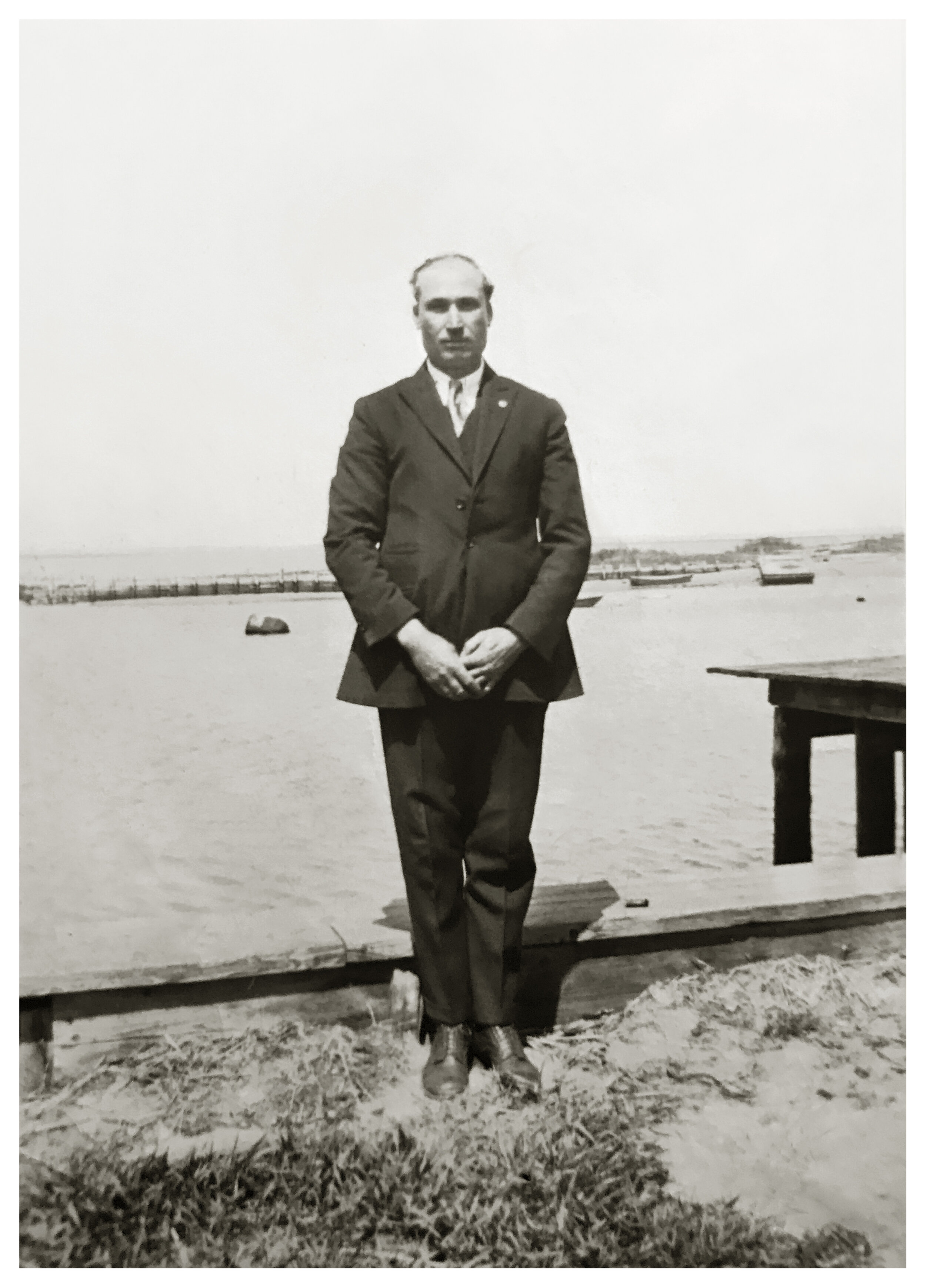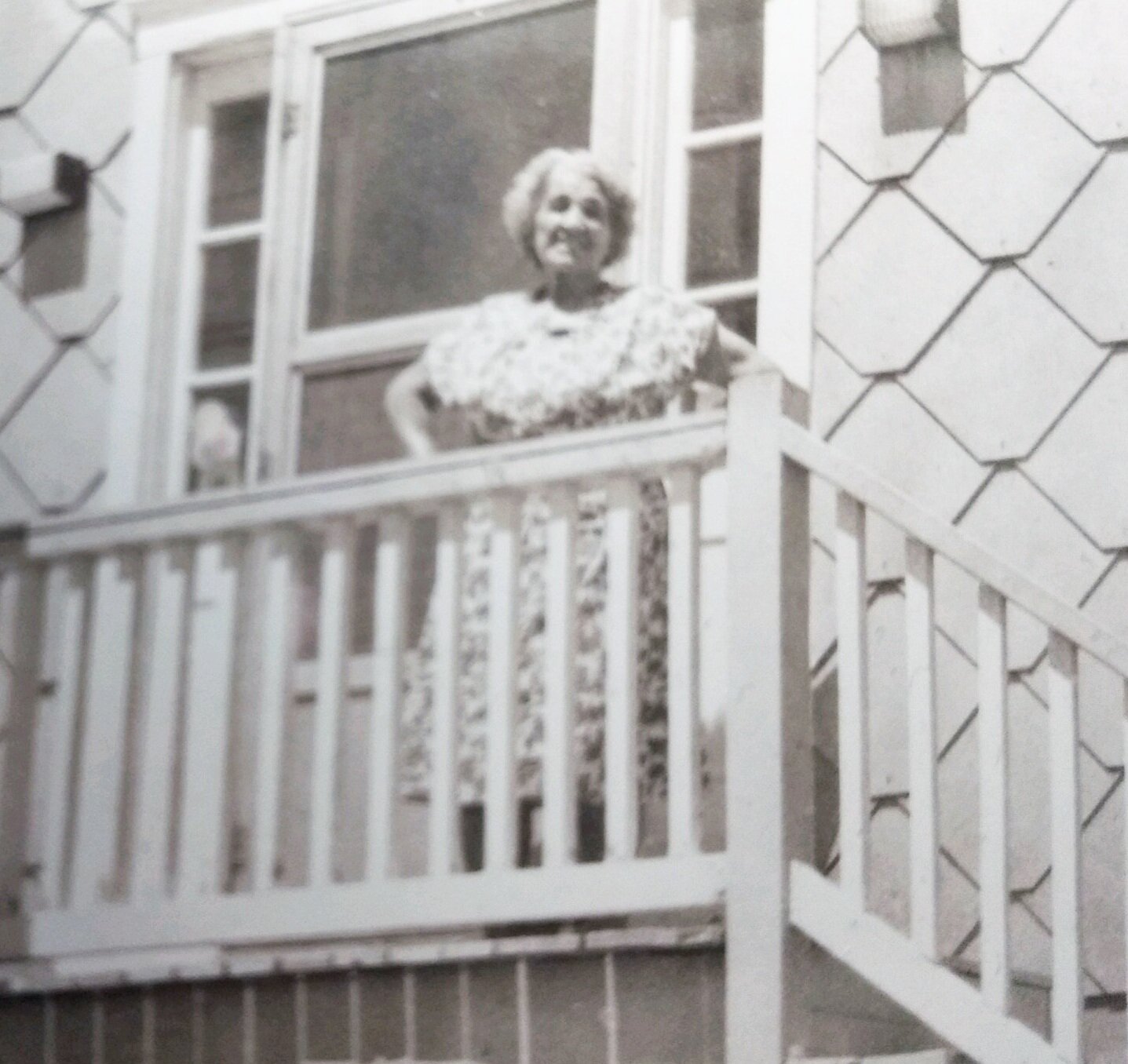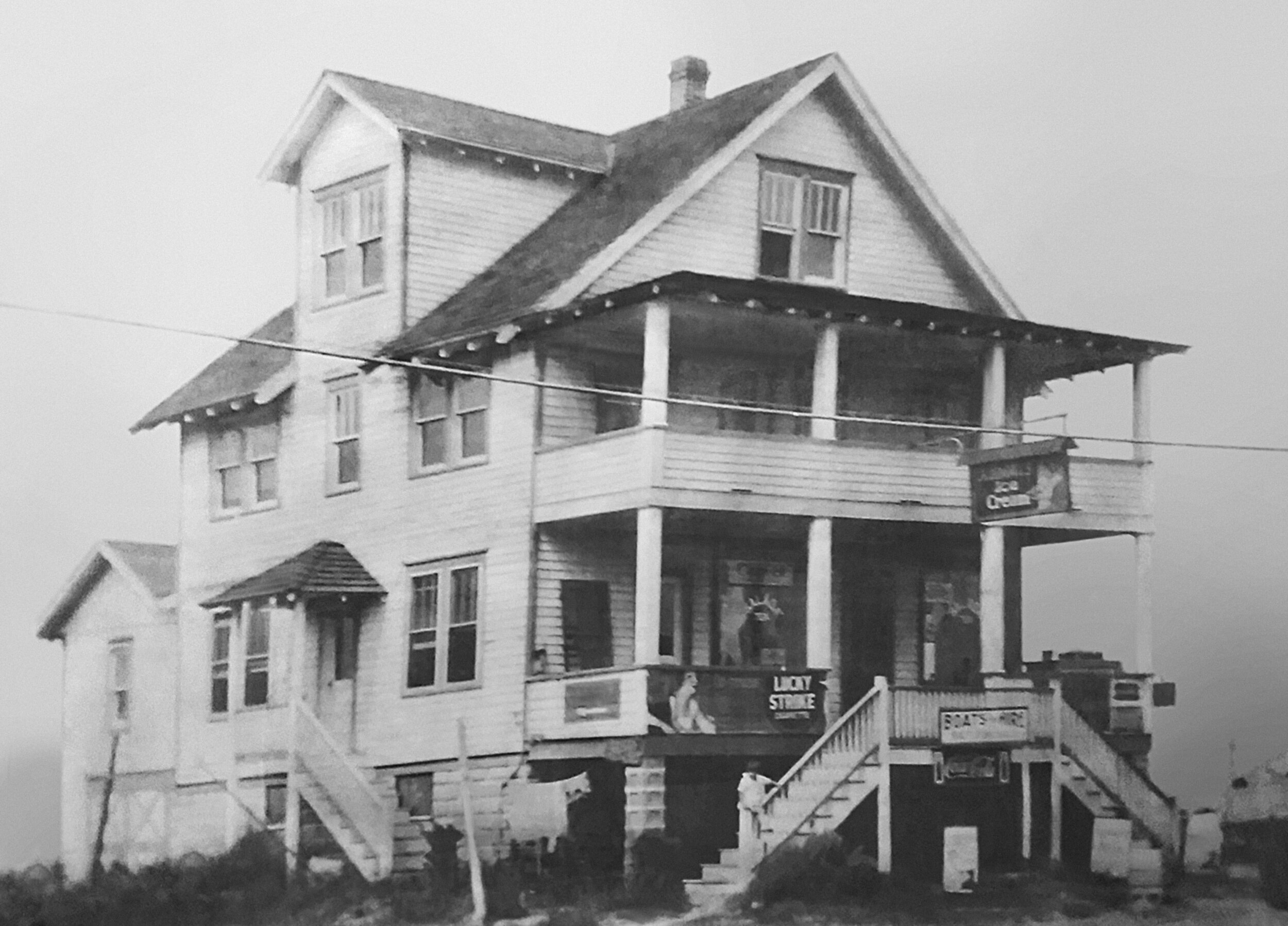Livin’ the Dream: The Piccolos Left Italy and Became a Big Part of Early Stone Harbor
A view of Piccolo’s across Smuggler’s Cove from what today is the Municipal Marina parking lot.
We often hear about immigrants pursuing “The Great American Dream.” Struggle and perseverance are often necessary steps. To see a great example of a family’s success in pursuing the dream, you don’t have to look any further than Stone Harbor, right here on the Seven Mile Beach.
Antonio (Tony) and Maritonia (Mary) Piccolo were part of a wave of 3 million who emigrated to the United States between 1900 and 1915. Tony was born in Chieti, Italy on the lush Abruzzo coast of the Adriatic Sea in October 1891. He arrived in Philadelphia on the SS Taormina around June 1909, according to immigration records. With no declared city of destination upon departure, he settled in Philadelphia. Tony married Mary in 1921. The Piccolos would display a healthy work ethic all their lives, a culture that was evident even as newlyweds: Mary worked in a cigar factory while Tony drove a mule truck delivering goods throughout the city.
The United States was in the midst of the Great Depression when the Piccolos decided to make a move from Philadelphia sometime before 1930. According to their grandchildren, Tony longed to live by the sea, perhaps like his native Chieti. That love for the sea apparently brought the Piccolos to Cape May County and Stone Harbor with their first child.
It was by no means a life of luxury for the Piccolos in their new hometown. Initially they lived on a boat before purchasing the 210-foot bayfront property at 82nd Street and Third Avenue. With money understandably tight, legend has it that the Piccolos physically incorporated their boat into the structure they built on the corner of 82nd Street. Building around their boat created a permanent incline in at least part of the building.
The Piccolos had worked hard in Philadelphia, and you’d expect nothing less once they arrived in Stone Harbor. According to the U.S. Census, Tony worked as a laborer, picking up work in both Stone Harbor and Avalon. Tony was part of the crew that built the old Avalon Swing Bridge on 21st Street. Records also show that he also worked for the Borough of Stone Harbor and, for a time, at Stone Harbor Lumber Company. Meanwhile, Mary set up shop, literally, at Piccolo’s store, at 8129 Third Ave. That is on Stone Harbor’s North Basin, or as it is called today, Smuggler’s Cove.
Although Avalon and Stone Harbor each had their own American Store (Acme Market) and A&P Market, both towns had more than a handful of local “grocers” – stores that carried a little bit of everything. Piccolo’s fit that description. It was a deli, a candy store, a grocery and ice cream store, and for a time, Mrs. Piccolo cooked and served meals in a small dining room. Keep in mind that the Piccolos were struggling to survive in the depths of the Great Depression in a location that wasn’t bustling by any stretch of the imagination. Although the northern end of Stone Harbor had a small year-round population, the southern end of Avalon, which was close to their location, at that time was virtually uninhabited – especially in the winter months. Third Avenue was still a sand road that hadn’t yet even been cut through to Avalon. Customers must have been at a premium for some time.
When asked if the store stayed open in the winter months, their grandchildren quickly responded, “They never closed – never.” So, perhaps out of necessity, or maybe because that was just the way that the Piccolos worked. A buzzer affixed to the front door would summon Mrs. Piccolo whenever a customer climbed the tall front stairs and entered the store. There are also newspaper advertisements announcing that Piccolo’s would begin serving sit-down meals beginning with breakfast at 6am through dinner until 8pm.
And while Tony worked hard at his day job, he too had responsibilities with the family business. Tony operated a makeshift marina behind the store complete with rental rowboats that he built by hand out of native white oak. Beneath a wooden hatch on the Piccolo’s dock was where the fresh “catch” was kept – minnows, oysters, clams, conch, snails and eels. Some, obviously available as bait, while others were among the freshest seafood available on the island, freshly caught in the waters surrounding Stone Harbor. Tony rounded out his marina experience by renting out several boat slips that he had for additional income. The boats were safe under the watchful eye of Tony.
“I can still remember climbing those high steps,” says Jonathan Atwood, a lifelong Stone Harbor resident and proprietor of the Sun N’ Sand Motel on 102nd Street. “And the best part was when you walked in the door. The aroma of Mrs. Piccolo’s cooking! I loved going there.”
Decades later, their grandchildren still talk of the aromas. Everyone has their memories of the store and the Piccolos.
“I’d always stop in there when I guarded down that end of town,” said Sam Wierman, owner of Ide Insurance in Stone Harbor. “They were really nice people, but you had to walk up that big flight of steps.”
Atwood concurs, about the Piccolos: “Mrs. Piccolo was just a prototype of a typically wonderful Italian grandmother,” he adds. “She was always so pleasant and cheerful. And she was always so nice to me. How could you not enjoy going in there?”
Neighborhood kids would head over to Piccolo’s with their pennies in hand for candy. One particularly talented young man spent summers with his family down the street from the store. Long before Taylor Swift sang a karaoke note at Henny’s, this young man would proudly display his singing and dancing skills inside or in front of the Piccolo’s store. And Mary especially liked the young man and appreciated his talents. As a token of their friendship, he gave Mrs. Piccolo an autographed photo signed, “Ronnie the Singer.”
Mary must have had a good ear for music because Jerry Blavat, “The Geator with the Heater,” tells us that little Ronnie turned out to be Ronnie Goodson of Ronnie and The Hi-Lites, who had a top-40 hit with “I Wish That We Were Married” in 1962, when he was 14. “He was a very talented young man,” Blavat recalls. “I believe that he came from Jersey City. I can still remember playing his record and having him join me at my record hops.”
The Piccolos, according to immigration records, spoke no English upon arrival. They went on to become naturalized citizens of their adopted country and were quick to learn the ways of the Jersey Shore as they diversified their investments and in addition to the store, purchased several rental properties throughout town. One granddaughter observes, “My grandparents were very enterprising and industrious.”
Maybe a bit too enterprising? In the 1930s, officials in Cape May County spent a great deal of time and effort trying to stem the flow of liquor that found its way to our beaches during Prohibition. Despite those concentrations, New Jersey State Police found the time to conduct a series of raids on seven Stone Harbor businesses in July 1933. Mary was one of two business owners arrested for possession of a slot machine in their places of business. A Cape May County judge fined both owners $50 and released them. Just slightly ahead of their time, by about 45 years, before the legalization of slot machines in Atlantic City. Imagine, though, the convenience of a slot machines on 82nd Street and another on 96th Street in 1933. The state police confiscated both machines.
Aside from his paid jobs, Tony also volunteered his time as a lifeguard and fireman, giving back to the community. As a fireman, he was said to have saved 16-year-old Eleanore Salvesen from a fire in her 83rd Street home. Seeing smoke, Tony ran to the fire only to find the girl’s grandfather overcome by smoke and on the ground, having fallen from a ladder trying to rescue his granddaughter. Tony took the ladder and quickly brought the girl out of the burning home before being overcome by smoke himself. Through his heroic efforts, no one was seriously hurt, although the home was severely damaged by what was determined to be an electrical fire.
The Piccolos are amazing examples of what hard work and perseverance can produce. They were tireless in working to provide for their family. Today their grandchildren are spread out from New Jersey to California and they still have the fondest memories of their time in Stone Harbor and their grandparents.
“We lived in paradise,” one granddaughter says. “From the beach and then swimming in the bay, living at a candy store, and my grandmother’s cooking. What more could a kid possibly want? They were great people.”
Tony died in 1963 after a lengthy illness. Mary continued to operate the store with help from her family until about 1971, when it finally closed. But not before creating a boatload of sweet memories for generations of Stone Harbor people who visited Piccolo’s and got to know Tony and Mary Piccolo.




